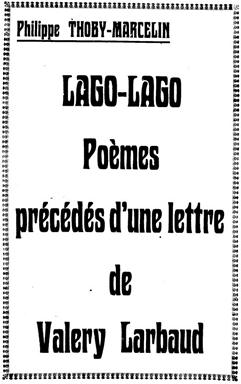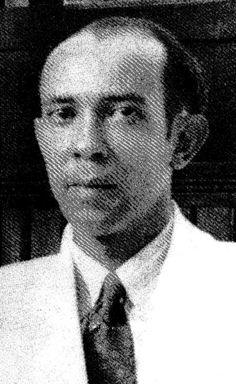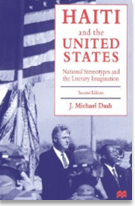 "The Indigéniste Movement" by J. Michael Dash, Ph.D.
"The Indigéniste Movement" by J. Michael Dash, Ph.D.
Dash is Professor of French, and Social and Cultural Analysis at New York University. He has written numerous books such as Literature and Ideology in Haiti: 1915-1961 (1981) and Haiti and the United States: National Stereotypes and Literary Imagination (1997).
A radical literary movement from the 1920s, Haitian indigenisme was provoked by a nationalist backlash against the United States Occupation. It was as much influenced by the ideas of Charles Maurras and the primitivism of the interwar years in France as by the Harlem Renaissance and Latin American regionalism.
The Haitian physician and ethnographer Jean Price Mars exerted an enormous influence on the militants of this movement because of his study of Haitian peasant culture, Ainsi parla l’oncle (1928), which was a defense and illustration of the African roots of Haitian culture. The short-lived literary magazine was La revue indigene (1927-28) lasted six months and had six issues. It was edited by Emile Roumer in collaboration with the poets Jacques Roumain, Carl Brouard, Philippe Thoby- Marcelin and Normil Sylvain. Whereas another journal La Trouee, which they founded in the same year, was more political, La revue indigene concentrated on mostly apolitical evocations of Haitian landscape and scenes from urban life. Indirect in their opposition to the heavy-handed attempts at modernization by the American military, these poems were unprecedented in their formal daring and their elevation of the local and the everyday to the level of art. They protested as much against western materialism as they celebrated an authentic Haitian specificity.
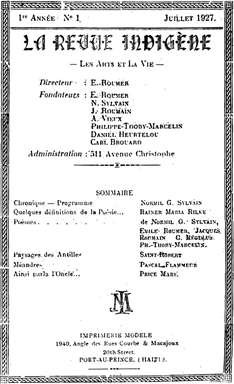
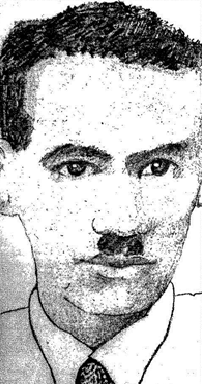
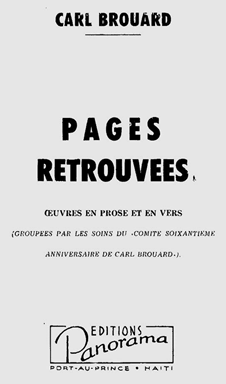
Two of the more distinctive voices of the generation of poets were those of Phillipe Thoby-Marcelin (1904-1975) and Carl Brouard (1902-1965). The former was known for his formal experimentation in presenting scenes of Haitian life, such as "l’Atlas a menti" and "Grand rue", which are impressionistic, collage-like depictions of a rapidly changing Haiti. He was not averse to using creole in these, sometimes funny, free verse compositions and would later become better known as a novelist. His contemporary Carl Brouard was much more of a bohemian and a mystic. His poems of this period are as much violent celebrations of cannibalism as they are evocations of a world of social outcasts meant to scandalize the Haitian bourgeoisie. He was initiated into the vaudou religion and his poems could be inspired by possession e.g. "Hymne a Erzulie". His themes ranged from the squalid," Bouge", to the socially conscious ,"Vous", the erotic, "ma muse."
By the 1930s indigenisme was already outmoded as intellectuals, shaped by its ideals, chose either Marxism or noirisme as ideologies best suited to rebuilding Haiti after the occupation ended in 1934.
